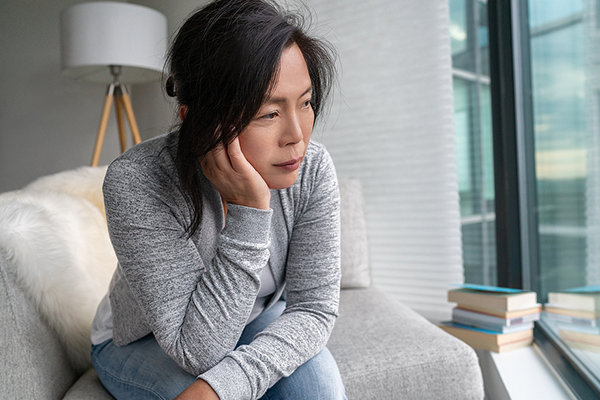How to Treat Anxiety and Depression
Both anxiety and depression are common mental illnesses, but being common does not make them any less complex. While both disorders are highly treatable, fewer than 40% of patients with anxiety receive treatment, according to the Anxiety and Depression Association of America (ADAA.)
If you or someone you love struggles with anxiety or depression, first know that you are not alone. Second, your health care provider can help you find the right treatment for you or your loved one.
Do I Need Treatment for Anxiety and Depression?
Anxiety is the most common mental illness in the United States, affecting almost 20% of the adult population. Depression is another common disorder, with almost 19 million American adults struggling with it. And unfortunately, the two can occur simultaneously. Among those diagnosed with depression, almost half of them also receive an anxiety disorder diagnosis, according to the ADAA.
Feeling sad sometimes is normal, and so is feeling stressed. When those feelings do not go away after several months or they begin to interfere with your day-to-day life, it could be a sign of depression or an anxiety disorder.
Anxiety Signs & Symptoms
- Excessive fear or worry
- Feelings or thoughts that are hard to control
- Physical symptoms such as rapid heart rate, shortness of breath or unexplained aches and pains
- Symptoms that get worse over time
Depression Signs & Symptoms
- Fatigue
- Feeling empty or hopeless
- Loss of interest in things you once enjoyed
- Physical symptoms such as digestive problems, headaches or unexplained pain
- Thoughts of death or suicide
If you or someone you love is struggling with thoughts of self-harm or suicide, call the National Suicide Prevention line at [800-273-8255.]
How Your Doctor Can Help
Both anxiety and depression disorders are treatable, and many patients see success when closely working with doctors and other health care professionals.
Receiving treatment for anxiety and depression is often done with medication, therapy or a combination of the two.
Medication
Anti-anxiety medications and antidepressants can help treat both disorders. However, it’s important communicate with your health care provider when deciding which medication works best for you. There are multiple types of medications, and you may need to try more than one before you find what works best for you.
Therapy
Therapy is sometimes called talk therapy, cognitive behavioral therapy or counseling. Each session is an opportunity to focus on your emotions and thoughts.
Therapy is also a place to process issues in your day-to-day life. Your therapist can work with you to identify treatment goals, such as how to minimize feelings of anxiety, healing from past traumatic events, or coping with stress or feelings of depression.





